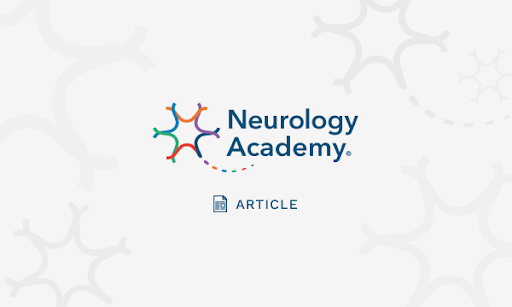The importance of self-care when we care for others
Event reportsDr Anita Rose, consultant clinical neuropsychologist, led Monday morning's session on 'Looking after yourself to improve your MS care' at the MS Trust 2021 annual conference. The session highlighted the importance of self-care in order to deliver the best possible care to people with multiple sclerosis (MS) in turn.
Beginning with an analogy of the well known in-flight procedure, she reminded the audience that in an emergency, we are expected to prioritise putting on our own oxygen mask before trying to help others. This, she said, is the epitome of self-care. Without caring for ourselves, we cannot care for others.
Looking specifically at the various elements of the role of an MS healthcare professional, she talked about how, often, there is a tendency to want to be a 'supernurse', or to 'fix' the difficulties that patients are facing. She explained that this need can both supersede the need to address or prioritise personal needs and feelings, and have a direct impact on our own thoughts, feelings, anxieties and concerns.
Compassion fatigue versus 'Burnout'
Whilst the two can manifest in similar ways, Anita gave a clear definition of burnout, and compassion fatigue, and the differences between the two. Whilst burnout is associated with increased workload difficulties and feeling unable to meet those workload demands, it is not trauma related.
Dr Anita Rose
Compassion fatigue: what it is and why it happens
Compassion fatigue, the personally felt stress or strain of working with others who are experiencing trauma, can result in our compassionate energy being expended, and this can cause a physical feeling of exhaustion.
Feeling emotionally connected to those we work with, and needing to support people across a wide-range of unpredictable and changeable needs, can be emotionally challenging.
If we are not looking after our own emotional wellbeing, we are more at risk of compassion fatigue and can become overwhelmed by the feelings and experiences of those we support, which can overflow into all areas of our lives.
How does it differ from burnout?
With burnout, we can become desensitised to our compassion, and depersonalised towards our patients. We feel less able to cope with the workload and to respond to it well. However, this feeling usually remains in the workplace itself, rather than expanding to other areas of our lives.
Tool for supporting self-care
Anita shared a number of practical ways that we can support our own self-care. Here are 10 ideas to try:
Use the wellness wheel (fig 1) to analyse how well we are coping in any area of life, from 1 (not well) to 10 (well). Use the areas with lower numbers as a focus for self-care.
Set boundaries, being clear with ourselves that we cannot fix everything. Determine when and where we will intervene, and learn to say 'no'.
Recognising triggers that cause stress or anxiety
Recognise your own emotions, be honest with yourself, and practice positive self-talk.
Practice mindfulness, breathing or a one-minute body scan (listening to your own body).
Walk outside for a moment to reset - nature is restorative, but even a car park has fresher air and a sense of space.
Deliberately smile or laugh - even when forced, it changes your neurochemistry!
Do things to support your overall wellness - eating well, moving your body or exercising more, try something creative, express yourself creatively somehow.
Include the work setting - use supervision as a positive force and build peer support groups to discuss stress and challenges - one positive of the boom in virtual meetings.
Be willing to self-assess. Try three positives and three negatives from your day, each day, to reflect on

Figure 1: the wellness wheel, as taken from Dr Anita Rose's session on 'Looking after yourself' at the MS conference 2021

An example of a completed 'wellness wheel'
Resources:
We have made you a quick wellness wheel, ready to use. Please download it and use it whenever and wherever you wish.
Anita mentioned 'laughter yoga' - find out more.
The science of smiling - more information and a study examining it.
Mindfulness practice was encouraged. This 3-minute guided mindfulness practice is a free resource developed by healthy lifestyle workstream lead and consultant neurologist Dr. Agne Straukiene - there for you to use as often as you wish!
Related articles
Encouraging excellence, developing leaders, inspiring change
MS Academy was established in 2016 and in that time has accomplished a huge amount with exciting feedback demonstrating delegates feel inspired and energised along their personal and service development journeys. The various different levels of specialist MS training we offer are dedicated to case-based learning and practical application of cutting edge research.


